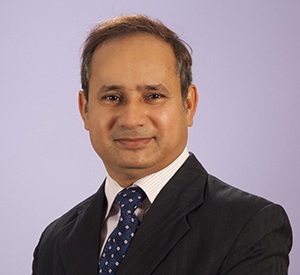Protect Yourself
February is Data Privacy Month, a Good Reminder to Check Your Online Security
 |
|
As security and IT professionals recognize February as Data Privacy Month, even the IRS is providing reminders and safety tips to protect your information from would-be cyber thieves. (Photo Paul Miller)
|
ALBANY, N.Y. (Feb. 15, 2018) — U.S. prosecutors just busted an identity theft ring that stole $530 million from Americans over the past seven years. Cybercriminals continue to buy and sell information on the dark web, and everyone — including newborns — are targets.
As security and IT professionals recognize February as Data Privacy Month, even the Internal Revenue Service is providing reminders and safety tips to protect your information from would-be cyber thieves.
"As tax season gets underway, it's important to understand that cybercriminals are actively trying to steal everything from your social security number to your banking information and refund," said Martin Manjak, Chief Information Security Officer for the University at Albany.
There are several actions you can take to protect yourself from identity theft, according to Manjak. For starters, if you haven't done so already, activate your online account with the Social Security Administration to prevent anyone from doing so. You can also find out if any of your passwords have been exposed in one of the numerous breaches reported by service providers.
 |
|
Associate Professor of Computer Science Pradeep Atrey
|
Understanding what the most common targets of ID theft are can help you protect yourself and your assets, says Pradeep Atrey, associate professor of computer science at UAlbany's College of Engineering and Applied Sciences.
"Money is what matters the most so the most common targets of identity theft are banking users," said Atrey, noting why it is so important to protect even the most basic personal information. "If someone gets to know your mother's maiden name, she or he would have all they need to justify being you to your bank, because all other information about you, such as your date of birth, is readily available to everyone."
It's not just at home that you should concern yourself with data privacy, either. If you are volunteering to coach a youth athletics team or simply an employee of an organization, you likely have access to sensitive information that would real value on the 'dark web.' That means you have a responsibility to keep that data safe.
"As employees of UAlbany, we have an obligation to secure the sensitive, regulated, and personally identifiable information entrusted to our care," said Manjak. To that end, UAlbany requires all faculty and staff to sign an 'Access and Compliance Agreement' form as a condition to maintaining access to University academic, research and business records.
UAlbany experts from Information Technology Services, the School of Business and the College of Engineering and Applied Sciences can offer analysis and insight on cyberattacks, cyber defense, digital forensics and surveillance. Among the topics they can discuss include privacy issues related to multimedia surveillance systems, communication infrastructure, hacking and malware.
UAlbany's information technology experts include:
- InduShobha Chengalur-Smith, associate professor of information systems and business analytics, School of Business: Chengalur-Smith's research interests include virtual communities, technology adoption and implementation, and information quality and security. She has worked on federally sponsored grants as well as industry-sponsored projects, ranging from best practices in computational thinking to technology implementation.
- Simeon Ananou, vice president for Information Technology Services and chief information officer: Ananou is an expert on data analytics, communication infrastructure, academic and administrative information systems and business intelligence. He can discuss the role of individuals and information technology systems in securing and protecting data.
- Pradeep Atrey, associate professor of computer science, College of Engineering and Applied Sciences: Atrey examines issues related to homeland security and privacy. He is an expert on multimedia surveillance for homeland security, privacy issues in multimedia surveillance systems, encrypted domain processing of big multimedia data over cloud systems, and large data analysis in online social networks.
- Sanjay Goel, professor of information security and digital forensics, School of Business: Goel led the development of UAlbany's four-year digital forensics program, and is an expert in information security, hacking, computer forensics, risk analysis, wireless security and botnets.
- Martin Manjak, chief information security officer, Information Technology Services: Manjak is responsible for all aspects of operational information security at UAlbany. He can discuss cybersecurity, malware and information security for large organizations.
![]() For more news, subscribe to UAlbany's RSS headline feeds
For more news, subscribe to UAlbany's RSS headline feeds
A comprehensive public research university, the University at Albany-SUNY offers more than 120 undergraduate majors and minors and 125 master's, doctoral and graduate certificate programs. UAlbany is a leader among all New York State colleges and universities in such diverse fields as atmospheric and environmental sciences, business, education, public health,health sciences, criminal justice, emergency preparedness, engineering and applied sciences, informatics, public administration, social welfare and sociology, taught by an extensive roster of faculty experts. It also offers expanded academic and research opportunities for students through an affiliation with Albany Law School. With a curriculum enhanced by 600 study-abroad opportunities, UAlbany launches great careers.


